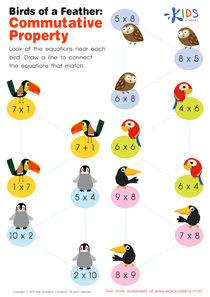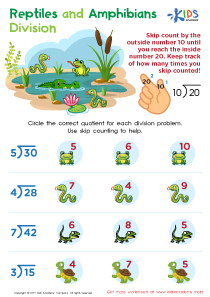Problem-solving abilities Grade 3 Word Problems Worksheets
4 filtered results
-
From - To
Enhance your Grade 3 students' problem-solving abilities with our engaging Word Problems Worksheets! Designed to challenge and develop critical thinking skills, these worksheets feature a variety of everyday scenarios that require students to apply their math knowledge in practical situations. Topics include addition, subtraction, multiplication, and division, presented in fun and relatable contexts. Each worksheet encourages logical reasoning, creativity, and independent thinking, helping young learners build confidence in tackling complex problems. Perfect for classroom use or homeschooling, our resources make math enjoyable while fostering essential life skills. Explore our diverse collection of worksheets and watch your students thrive as they master problem-solving techniques!
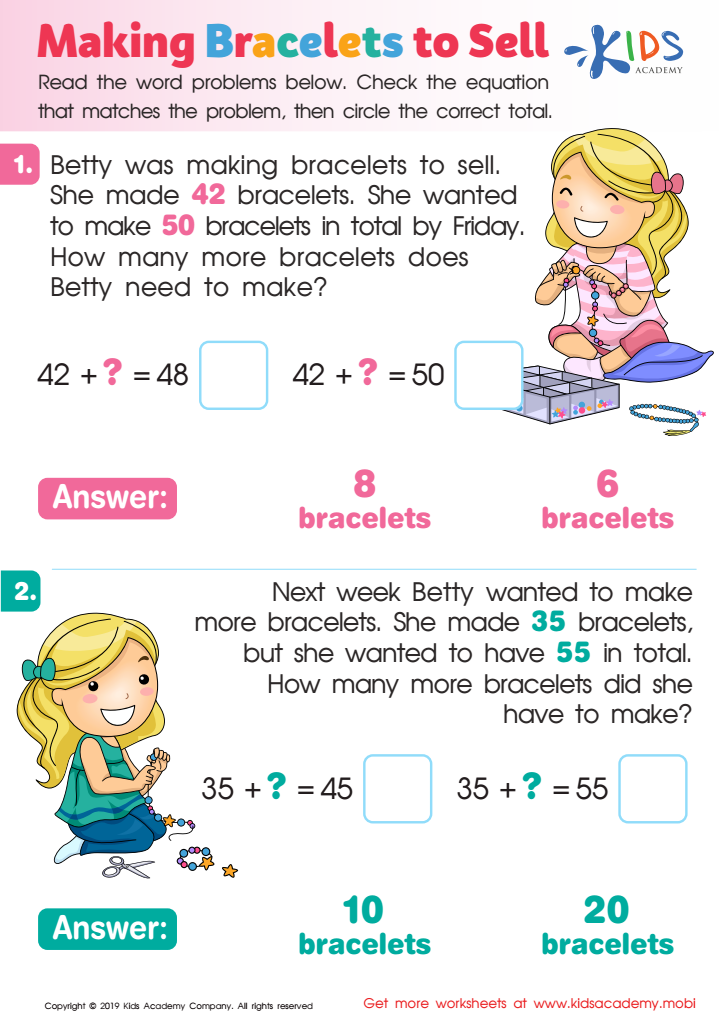

Making Bracelets to Sell Worksheet
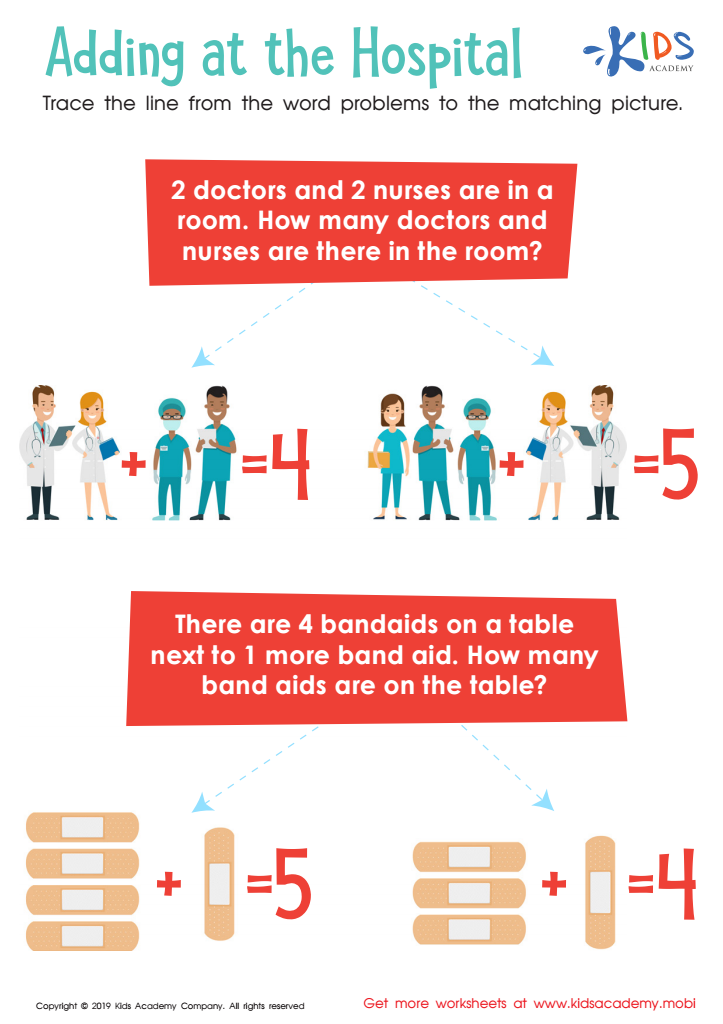

Adding at the Hospital Worksheet
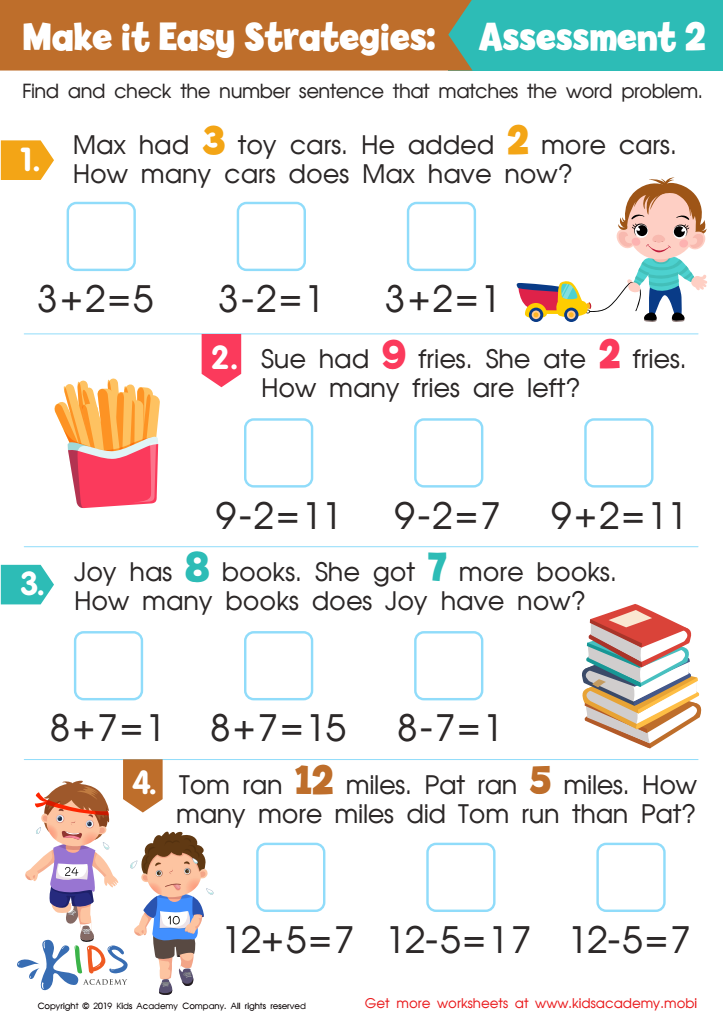

Make it Easy Strategies: Assessment 2 Worksheet
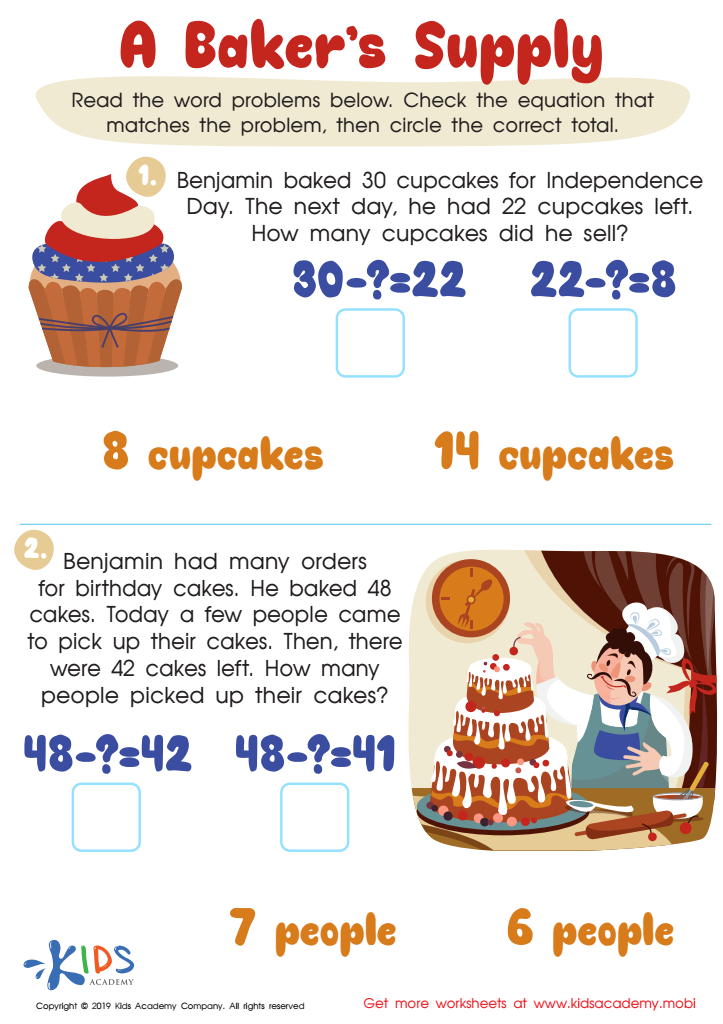

A Baker's Supply Worksheet
Parents and teachers should prioritize problem-solving abilities in Grade 3 word problems because these skills lay a foundation for critical thinking and academic success. At this stage, children's cognitive development is advancing, and their ability to understand and manipulate numbers is crucial. Word problems challenge students to interpret real-life scenarios mathematically, promoting logical reasoning and enhancing their comprehension skills.
Investing in problem-solving skills also improves students' confidence in tackling more complex problems as they progress in their education. These abilities encourage perseverance and resilience, traits that are invaluable not only in academics but also in everyday life.
Furthermore, effective problem-solving contributes to deeper mathematical understanding, enabling students to apply concepts beyond rote memorization. Teachers and parents can foster these skills by encouraging discussions around problem strategies, guiding children through varied problem types, and validating their thought processes.
As children develop their problem-solving abilities, they build a toolkit for approaching challenges critically, a skill that transfers well into other subjects and real-world situations. Ultimately, nurturing these skills in young learners can help set them up for lifelong success, making it a priority for educators and parents alike.
 Assign to My Students
Assign to My Students








